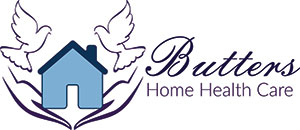What is Myasthenia Gravis?
Myasthenia gravis (MG) is a condition that causes weakness and fatigue in the muscles. It is most commonly diagnosed in women when they are under 40 and in men when they are over the age of 60. However, it can occur at any age. June is Myasthenia Gravis Awareness Month, a good time to learn about the disease and its symptoms.
Senior Care Clifton VA – What is Myasthenia Gravis?General Information About MG
MG is a kind of autoimmune disease, which means that the body’s immune system attacks normal, healthy tissues by mistake. In the case of MG, the immune system attacks the neuromuscular junction, which is where nerves connect to muscles. The disease has appeared in medical documents since 1672 but was not given a name until the 1880’s. The name myasthenia gravis translates to “grave muscular weakness.”
There are drugs that can treat MG symptoms by suppressing the immune system or increasing the signals between muscles and nerves. In some cases, the doctor may recommend surgery. Most of the time, the disease is manageable and people with it can lead active lives. Some even go into remission for years.
Symptoms of MG
As the person with MG uses the affected muscles, they get weaker. Usually, the weakness gets better when they rest. It can also happen intermittently. The symptoms of MG get worse over time and usually reach their worst point within a couple of years. Any of the muscles that a person has voluntary control over can be impacted.
However, symptoms most commonly occur in certain muscle groups, including:
Eye Muscles: Over half of all people develop symptoms in their eyes first. They may experience drooping eyelids or double vision.
Face and Throat Muscles: In around 15 percent of people, MG begins in the muscles of the face and throat. Common symptoms are trouble speaking, difficulty swallowing, problems with chewing, and a change in facial expressions.
Neck and Limb Muscles: Weakness in the neck, legs, and arms can make it hard to hold the head up, walk, or perform activities that require use of the arms.
If your family member suffers from MG, having a senior care provider can allow them to save their muscle strength for activities they enjoy. A senior care provider can take care of the housework, including cleaning, cooking, doing dishes, and laundry. Senior care providers can also prepare meals that are easier to chew and swallow for those whose facial muscles are affected by MG.
Sources: https://www.mayoclinic.org/diseases-conditions/myasthenia-gravis/symptoms-causes/syc-20352036
https://www.ninds.nih.gov/Disorders/Patient-Caregiver-Education/Fact-Sheets/Myasthenia-Gravis-Fact-Sheet
https://www.mda.org/disease/myasthenia-gravis
